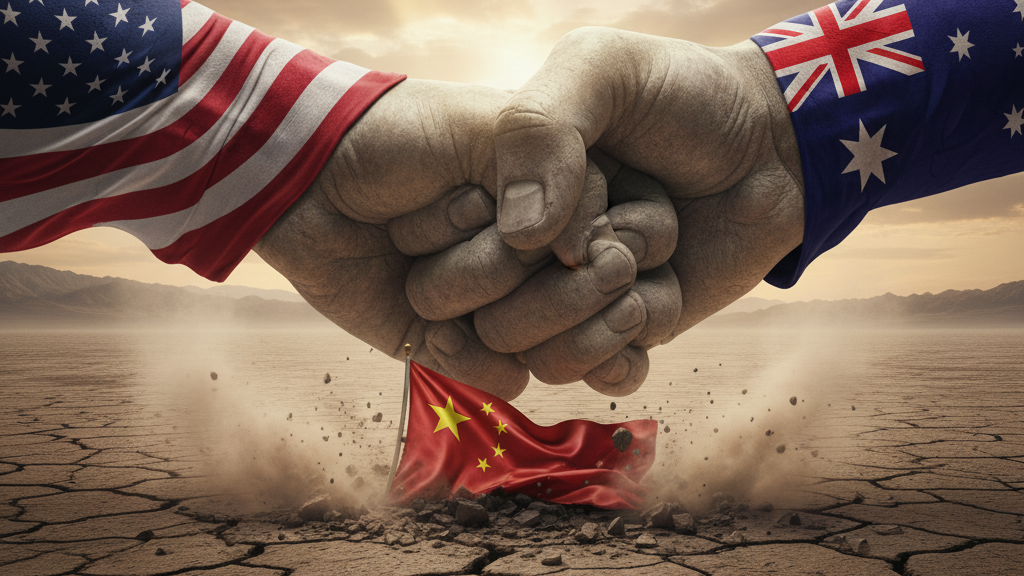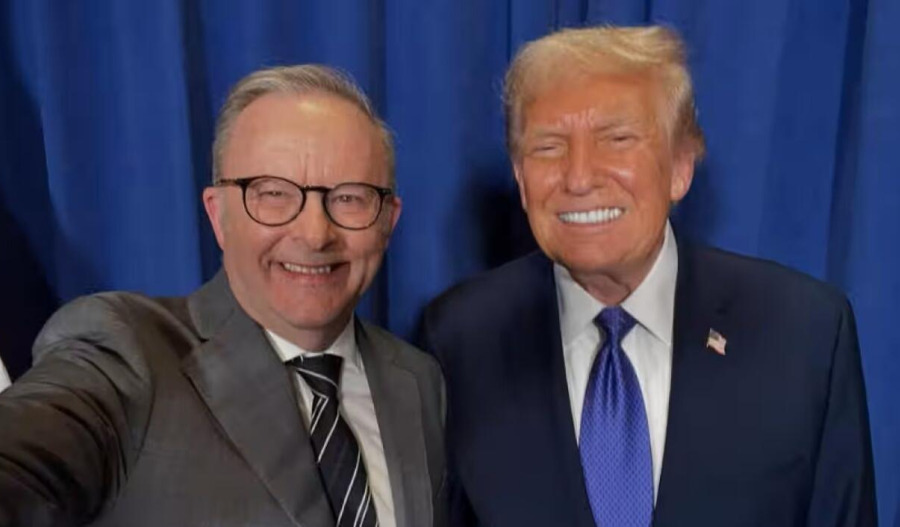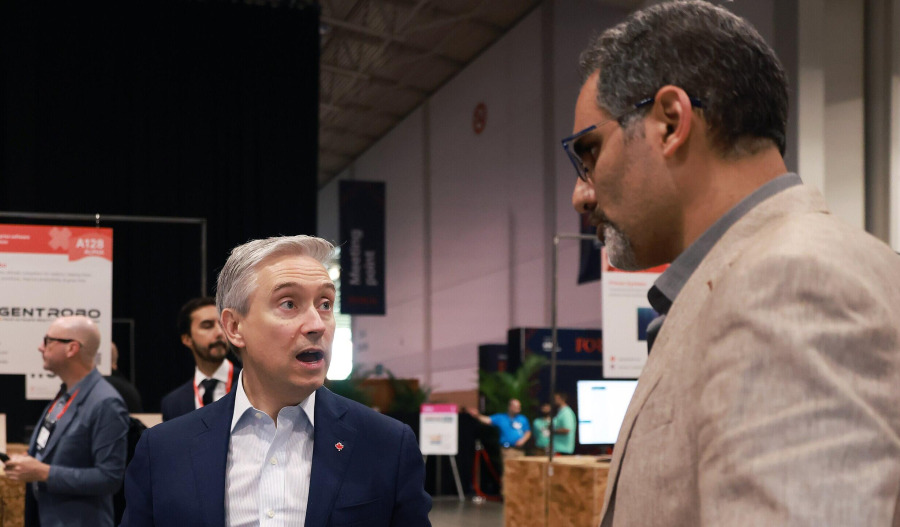The Trump-Albanese critical minerals agreement contains resources projects worth a whopping US$53 billion (A$81.7 billion), according to the White House fact sheet.
In reaching that figure, the United States and Australian governments intend to invest more than $3 billion together in critical mineral projects over the next six months.
The two leaders met in Washington to sign a critical minerals pact to secure supply chains that are under threat from Chinese export restrictions as part of an ongoing trade war with the United States.
READ MORE: Albanese unscathed as Trump waxes lyrical on critical
Government mechanisms, such as the Export-Import Bank (EXIM) of America, are issuing seven Letters of Interest for more than $2.2 billion in financing, unlocking up to $5 billion of total investment for critical minerals and supply-chain security projects.
The U.S. Department of War will invest in the construction of a 100 metric tonne-per-year advanced gallium refinery in Western Australia.
Financial structure
Within six months, the framework of the deal states both countries “are taking measures to provide at least $1 billion in financing to projects located in each of the United States and Australia expected to generate end product for delivery to buyers in the United States and Australia”.
Two priority projects received funding announcements from the Australian Government.
The Alcoa-Sojitz Gallium Recovery project in Wagerup, Western Australia, is set to receive up to $200 million in concessional equity finance, with both governments securing offtake rights.
Japan has already provided 50% of the project costs to date in this trilateral venture that will provide up to 10% of total global gallium supply
Arafura's Nolans project in the Northern Territory has received a US$100 million equity investment from Australia, too, and once operational, the project is pegged to produce ~5% of the world's rare earths.
"Australia is home to much of the periodic table of critical minerals and rare earth metals that are vital for defence and other advanced technologies," Prime Minister Anthony Albanese said.
Key commitments:
- $53 billion in recoverable resources across targeted projects
- $3 billion joint government investment over six months
- $2.2 billion in Export-Import Bank Letters of Interest
- $5 billion total investment unlocked through Ex-Im financing
- $1.44 trillion Australian superannuation investment in the U.S. by 2035
- $200 million for Alcoa-Sojitz Gallium Recovery project
- $100 million for Arafura Nolans rare earths project
The White House projects this “will create tens of thousands of new, high-paying jobs for Americans”.
Supply chain controls
The framework also establishes “a U.S.-Australia Critical Minerals Supply Security Response Group to identify priority minerals and supply vulnerabilities and develop a coordinated plan to accelerate delivery of processed minerals."
Both countries are to "accelerate, streamline, or deregulate permitting timelines and processes, including to obtain permits for critical minerals and rare earths mining, separation, and processing within their respective domestic regulatory systems," the White House stated.
"Participants will work to protect their respective domestic critical minerals and rare earths markets from non-market policies and unfair trade practices, including through the adoption of standards-based systems in which those who adopt the standards can trade freely and within a pricing framework including price floors or similar measures."
Asset sales will face new scrutiny, with both countries committing to developing new or strengthening existing authorities and diplomatic tools to deter minerals being offloaded to overseas entities on grounds of national security.
Defence commitments
Australia's defence spending breakdown:
- $1.2 billion for Anduril unmanned underwater vehicles
- $2.6 billion for Apache helicopters
- $2 billion to U.S. submarine industrial base ($1 billion paid, $1 billion due by year's end)
- $2 billion in U.S. companies for Joint Air Battle Management System
- 200+ manufacturing suppliers supported across Texas, Florida, Arkansas, and Alabama
Since February, Australia has contributed $1 billion to expand and modernise the U.S. submarine industrial base, with another $1 billion due by year's end to strengthen "the Australia - United Kingdom - United States (AUKUS) trilateral security partnership to meet the challenges of tomorrow."
The U.S.-Australia alliance is securing munitions supply-chain resilience under Australia's ‘Guided Weapons and Explosive Ordnance’ enterprise.
Fine print
The framework includes a critical disclaimer: it "does not constitute or create rights or obligations under domestic or international law" and “does not constitute or create any legally binding or enforceable obligations”.
Either party can break the deal with 30 days' written notice.



